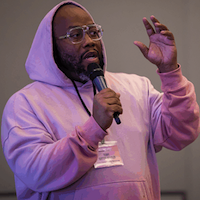The deadlines are becoming more and more unrealistic.” … “The pressure of quarterly numbers is relentless.” … “I feel overworked and underpaid. They keep cutting jobs and increasing my work load.” … “I don’t talk about this anymore, but I still feel fearful since Sept. 11.” … “I’ve been out of work for a long time. It’s hard not to feel desperate.”
Chronic lack of time, economic pressures, and emotional and physical exhaustion are plaguing the American workplace. These commonplace stressors have led to an environment fraught with conflict, thoughtlessness, and emotional reactions born of fear.
In the recent survey “Attitudes in the American Workplace,” conduced by Harris Interactive, 51% of respondents said people at work are neither more understanding of each other nor more cohesive as a team since Sept. 11. Sixty-nine percent said gossip is common in their workplace, and 24% claim they’ve seen someone’s reputation unfairly damaged because of gossip or rumors. Rudeness (31%), cliques (30%) and backstabbing (33%) were termed problems by almost a third of respondents.
Nearly 50% of those who answered a survey by Northwestern National Life reported that their job was “very or extremely stressful,” according to publication 99-101 from the National Institute for Occupational Safety and Health (NIOSH).
Here’s how this contentious business environment has affected some people.
-
John has been out of work for eight months, and so he was excited to be interviewing for a marketing vice president position at a large DM cataloger. He was anxious and felt he had to do everything perfect to get the job.
John failed to assess the type of person who was interviewing him. Charlie, the president, was a “get to the point” kind of manager and had little tolerance for long-winded responses. Had John been in touch with himself, rather than filled with thoughts of how to impress this guy, he would have noticed how often Charlie cut him off with another question during the interview.
John hoped to impress Charlie in his thank-you e-mail. John went on and on about what he would do to re-shape the hiring company’s branding image. The potential employer zipped back a terse reply. “My branding strategy: We beat the competition!” John’s application was dead in the water.
-
Lenore, a single mother, is a bundle of nerves about the recent layoffs at a subsidiary of a major financial services firm. Her nervous energy comes out in her inability to take no for an answer. Lately, in an attempt to be seen, she’s been forcing ideas on her boss that she just won’t give up on. It’s created tension between them, and he does his best to avoid her.
-
Joseph is the senior art director at a large DM agency. He’s constantly on deadline for new business pitches and concept ideas for the agency’s clients. His work schedule is relentless, so when he gets home he can’t unwind. It takes him hours to fall asleep and then he drags himself out of bed to start again the next day.
On final deadline days Joseph has flare-ups with his colleagues and gives insufficient direction to those who report to him. As a result, they don’t know what he expects of them. He rarely gives feedback unless something isn’t done right.
-
Donna considered her co-worker Nick a friend. When Nick was promoted he was given a project to supervise that called for Donna to unofficially report to him. Donna began to feel resentful and judgmental. More and more she found areas where their ideas were in conflict. They have had more than a few moments of discomfort, anger and sometimes childish outbursts. Unclear lines of authority, tinged with power and politics, have poisoned their relationship.
When any kind of major pressure is exerted from the outside — time or money issues, or matters of power, prestige and security — we come face to face with our beliefs about ourselves and are left to look inward.
For many people, there is a physical and psychological breaking point that is the precursor to this moment of truth.
Headaches, sleep disturbances, difficulty in concentrating, short temper and low morale are just the beginning of the malaise. Many studies suggest that demanding positions which allow employees little control over the work process increase the risk of cardiovascular disease, or raise the likelihood of back disorders. Work-related stress can lead to depression and burnout and can set the stage for physical injuries on the job. Some studies, according to the NIOSH publication cited earlier, suggest a relationship between stressful working conditions and ulcers, cancer and suicide.
But this kind of stress can be a real opportunity in disguise. If you’re courageous, work stress can point to the gap in your personal beliefs and those of your employer. If you are willing to explore, stress often leaves you asking some serious questions: Who am I? What is my purpose in life? Is this all there is?
Workplace stress places you at a fork in the road. You can blame the job, the employer, your boss and the economy, and then find another job that allows you to take a geographic cure for what ails you. Or you can use the stress to face some of the bigger questions that life can throw at you.
It may take some quiet time to come up with an answer. It may take a few sessions with a coach, therapist or your religious/spiritual director. It probably will take courage and perseverance. If you do the inner work now, you just might find real satisfaction. And you stand to gain the added benefit of an improved home life and better relationships.
If, however, you choose to ignore this opportunity, it likely will come up again at another point in life when stress taps you on the shoulder and forces you to face these serious questions all over again.
Why not deal with it now?
CONNIE LAMOTTA is president of Strategies for Living, Upper Nyack, NY.
VICTORIA JAMES is president of Victoria James Executive Search Inc., Stamford, CT.



